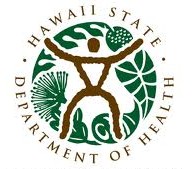Increase in Mumps Cases Prompts Investigation
 An increase in cases of mumps infections throughout the State of Hawai‘i has prompted an investigation by the Department of Health (DOH).
An increase in cases of mumps infections throughout the State of Hawai‘i has prompted an investigation by the Department of Health (DOH).
Since March, 2017, DOH has documented two clusters of cases–including at least nine on O‘ahu–bringing the total number of confirmed cases statewide for the year to 14. So far, none of the infected persons have needed hospitalization.
“Healthcare providers have been notified, and because this disease is easily spread, we expect additional cases to be reported in the coming weeks,” said State Epidemiologist Dr. Sarah Park. “There is no specific treatment for mumps infection and while most people will recover completely, mumps can occasionally cause complications, especially in adults. Cases have been reported in vaccinated individuals, but vaccination is still the best protection against this disease. We encourage everyone to review their immunization record and talk to their healthcare provider about mumps vaccination.”
Park encourages the public to review their immunization records and talk to their healthcare provider about getting vaccinated against mumps. The MMR vaccines protects against measles, mumps and rubella, and prevents most cases of mumps. Two doses of the vaccine are 88 percent effective against an infection, and one dose is 78 percent effective. DOH recommends getting fully vaccinated for the best chance of protection and public health across the state. MMR vaccines are available at local pharmacies. More information is available by calling the United Way information and referral line at 2-1-1.
Caused by a virus, mump is a contagious disease. The symptoms include parotitis (swelling of the salivary glands in front of the ears) resulting in a tender, swollen jaw. Other symptoms include: fever, headache, muscle aches, tiredness and loss of appetite. Some people who become infected have very mild symptoms, or none at all. If any of these symptoms arise, an individual should seek medical attention immediately.
The disease is most infectious in the days before and after the onset of parotitis. The disease is airborne and can be spread by coughing and sneezing. Sharing items like cups and eating utensils, or touching contaminated objects or surfaces and then touching the eyes, nose or mouth can also cause infection.
People infected with mumps need to stay home from school or work for nine days following the onset of parotitis to keep it from spreading.
Additional information about mumps can be found on the DOH website at http://health.hawaii.gov/docd/disease_listing/mumps/.






